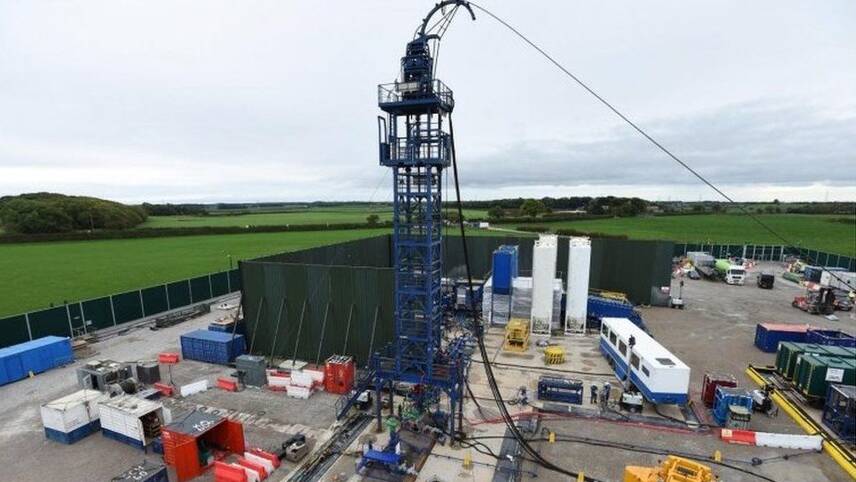Register for free and continue reading
Join our growing army of changemakers and get unlimited access to our premium content

Image: Cuardilla
Business and Energy Secretary Kwasi Kwarteng has today (5 April) written to the British Geological Survey (BGS), requesting a three-month review of the tremor risks associated with fracking in the UK. Kwarteng’s letter states that “while it remains the case that shale gas extraction is not the solution to near-term price issues, it is right as a government – given the unprovoked invasion of Ukraine by Putin’s regime – that we keep all possible energy generation and production methods on the table”.
However, it states that the Government will only reassess its current approach with “new, compelling, scientific evidence”. This builds on comments previously given to the media by Prime Minister Boris Johnson, who has stated that fracking will “only proceed if the science says it is safe, sustainable and causes only minimal disturbance to local communities”.
Kwarteng has requested information from the BGS before the end of June, regarding any developments in the science, techniques and technologies relating to fracking that could reduce the risk of tremors. The Conservative Government imposed a moratorium on fracking in 2019 because companies leading extraction projects could not prove their ability to operate below a threshold for tremors they had previously agreed to.
Citizens groups in Lancashire, where fracking in the UK has largely been concentrated, celebrated when the moratorium was introduced and have been urging Ministers not to make a U-turn decision.
Kwarteng has also asked the BGC to outline which sites outside of Lancashire may be suitable for fracking. He states that the Government is aware that the shales existing in the county have “problematic geography”.
In recent weeks, Kwarteng has publicly voiced his concerns over whether re-opening fracking sites in the UK would have any significant impact on the energy price crisis and whether it could be made compatible with the UK’s long-term climate goals. To this latter point, the Climate Change Committee (CCC) has advised against future fracking.
Nonetheless, Johnson and other factions of Government have continued to vocally support domestic fracking as a means to decrease the UK’s reliance on fossil fuel imports. Energy Minister Greg hands stated last month that “shale gas and new approaches could be part of our future energy mix”.
A poll commissioned by Hanbury Strategy’s Green Unit and conducted by Stack Data Strategy, which polled 1,501 UK adults, found 39% would welcome the inclusion of fracking in the Government’s energy strategy. Support for fracking was stronger among those who voted Conservative than those who voted Labour or Liberal Democrat.
Energy security strategy update: Wind row rolls on
The Government is planning to publish the energy security strategy this week. Following a string of delays, several media outlets are now reporting that the documents are likely to be published on Thursday (7 April). The strategy is expected to detail new ambitions – and new funding to deliver them – for scaling offshore wind, nuclear power and domestic oil and gas production from the North Sea.
The Cabinet is reportedly still divided on whether the strategy should be used to relax planning news for onshore wind farms. Johnson is a supporter of such a move, but there has been strong opposition within his own party; the Guardian is reporting that 100 Tory MPs have been lobbying for existing rules to remain in place, including nine Cabinet members.
Public polls have indicated that opposition to onshore wind farms on the basis that they are “eyesores” for local communities has been exaggerated. In a survey conducted by MoneySavingExpert founder Martin Lewis, which garnered more than 67,300 votes, just 3.1% of respondents said they live near a wind farm and find it unattractive. The Government’s own opinion polls, conducted in October 2021, revealed that 70% of people support onshore wind development.

